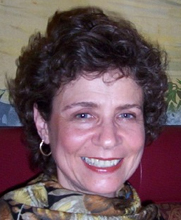 |
|||||||||||||||||||||||||||||||||||
|
|||||||||||||||||||||||||||||||||||
|
|||||||||||||||||||||||||||||||||||
|
|
|||||||||||||||||||||||||||||||||||
|
Questions & Answers - April 2003
Dear Mary, If your father is able to make his own decisions the law says he has the right to live as he chooses. However, if you question his judgement or think he's in danger, please call Adult Protective Services (APS) at the local Department of Social Services. APS investigates all forms of suspected elder abuse from physical and emotional to neglect and financial exploitation. Your identity is protected and you can even call anonymously. Lonely seniors are prime targets for scam artists. As humans we are social beings and need affection from and interaction with people who care. How much time do you or other family members spend with him? Would he consider living in senior housing? Does he participate at the local Senior Center? Contact your local Area Agency on Aging and get information about housing and activities for seniors. You can also suggest that he get involved with the community as a volunteer or work a few hours a week even if it’s packing groceries at the local supermarket. Good luck. * * * Dear Mary, Wow, one column isn’t enough space to address your question thoroughly but I’ll give you the basics. Alzheimer’s disease has three basic stages, stage I or mild, stage 2 or moderate, and stage 3 or severe also called end stage. Each person progresses through them at his or her own rate and the stages can blend together. The closest comparison I can give you about what each stage is like is from an article published in the American Journal of Psychiatry in 1982 by Reisberg et. al. The authors identified seven levels of primary degenerative dementia. The last three I equate to the three stages of Alzheimer’s disease. In the first stage when diagnosis has been made, the person has a cognitive ability (knowing, understanding, emotional, and intellectual) of a 12 to 9 year old. In the second stage cognition is of a 9-year-old to 18-month-old. And in the last stage that of an 18-month-old to 0. This doesn’t mean that the person should be treated as a child, but it does impact his or her ability to cope, communicate, and function. Behavior management techniques are developed for each stage, but one size doesn’t fit all. Caregiver strategies to cope are numerous, the best ones being those that empower them through education about the disease process, enable understanding of why behaviors occur, and teach how to effectively manage them. My experience has been that through education and sharing in support groups caregivers get perspective and learn how to take care of themselves. If you haven’t already done so please contact the Alzheimer’s Association at 1-800-272-3900. They can also be reached through their website at www.alz.org. This organization has invaluable information about the disease and other related dementias as well as about support groups in your area. As for being catching, it isn’t, though we all have days when we wonder if we have it! God Bless. Dear Mary, I am inquiring if there are any tips to help me with my husband using the toilet. He doesn't seem to get close enough to urinate while standing, just goes all over whenever he is inside the toilet area. I have tried urinals and when I am able to catch him I can help. He has a fear of sitting down and we do have an elevated toilet seat with bars on either side. Outside of cleaning up every time he goes do you have any suggestions? Is your husband able to use, and remember to use, a urinal by himself? If he is, put one on the toilet lid where he can easily reach it. If not, try putting a narrow pail (plastic waste paper type) on the floor in front of and as close to the toilet as possible to catch the urine. A narrow pail takes up less room so is less likely to be tripped over. Anyway you look at it though there will be some clean up involved.
It is illegal to reprint articles, in any format (including emails, websites, etc.), without explicit written permission from the author of this article and / or Empowering Caregivers™ |
|||||||||||||||||||||||||||||||||||
|
|||||||||||||||||||||||||||||||||||
|
EMPOWERING CAREGIVERS™ is trademarked. All Information on this website is owned by Gail R. Mitchell. This includes but is not limited to the journal exercises, Newsletters and original articles, etc. Permission must be obtained from Gail R. Mitchell for any external use of this material.
© Copyright Gail.R. Mitchell. All rights reserved. |
|||||||||||||||||||||||||||||||||||
